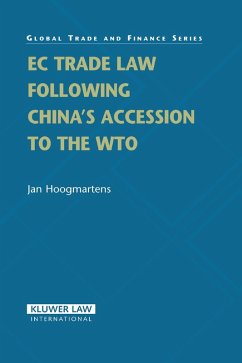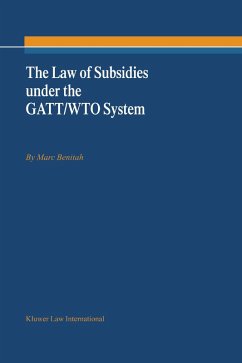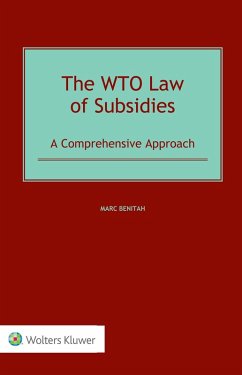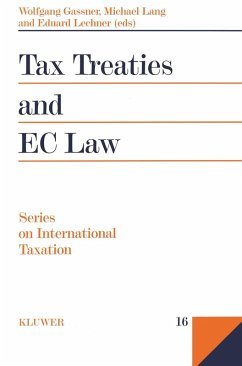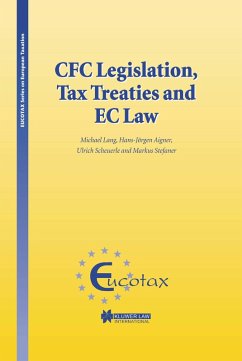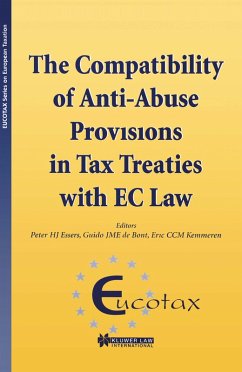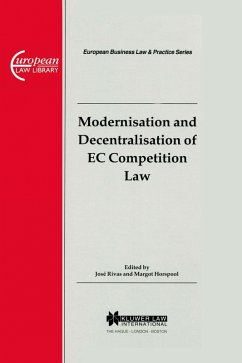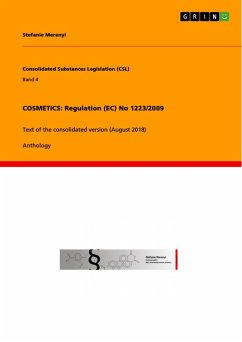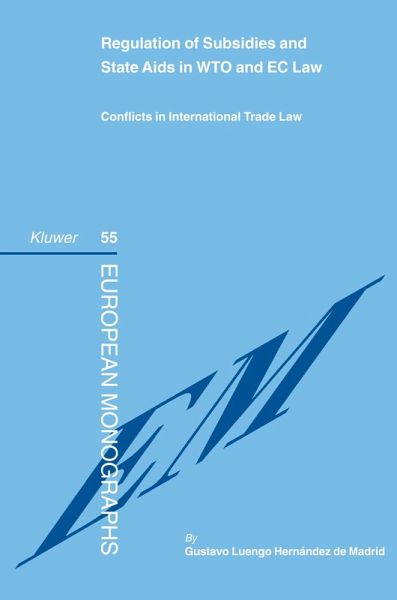
Regulation of Subsidies and State Aids in WTO and EC Law (eBook, PDF)
Conflicts in International Trade Law

PAYBACK Punkte
104 °P sammeln!
Regulating subsidies in international trade is crucial to the efficient and equitable allocation of resources and ultimately to global welfare. Much of the serious instability that persists in today''s interdependent world may be traced to government interventions that dilute or defy such regulation. In this in-depth analysis of subsidies and State aids, Gustavo Luengo details the regulatory elements that reveal how governments undertake the granting of support to their national industries. Although in theory such support is aimed at two overriding economic objectives - the elimination of harm...
Regulating subsidies in international trade is crucial to the efficient and equitable allocation of resources and ultimately to global welfare. Much of the serious instability that persists in today''s interdependent world may be traced to government interventions that dilute or defy such regulation. In this in-depth analysis of subsidies and State aids, Gustavo Luengo details the regulatory elements that reveal how governments undertake the granting of support to their national industries. Although in theory such support is aimed at two overriding economic objectives - the elimination of harmful distortions, and the correction of market failures - he shows that in practice it is political contexts that determine the principles and objectives of the regulation of subsidies.
The analysis focuses on two mature regulatory systems, those of the World Trade Organization (WTO) and the European Communities (EC). The author describes both legal frameworks, and then proceeds to examine the differences and conflicts between the two systems, along with their reasons, consequences, and possible solutions. Significant aspects of the regulation of subsidies that emerge from the analysis include the following:the role of ''countervailing measures'' the EC notion of ''State aid'' as developed by the European Commission and the European Court of Justice procedures for controlling subsidies under both systems and the consequences of granting subsidies in violation of applicable rules the elements of ''financial contribution'' and ''benefit'' under the Agreement on Subsidies and Countervailing Measures (ASCM) actionable and non-actionable subsidies agricultural subsidies in both systems the role of WTO dispute settlement procedures
Both for its clear and comprehensive overview of the regulation of subsidies and State aids and for its insightful recommendations, this book will be welcomed as a major contribution to the field of international economic law. Practitioners, policymakers, officials, and academics will all find it enormously valuable for its analytic depth and its direct applicability to the need to develop fair and enforceable regulation of subsidies and State aids.
The analysis focuses on two mature regulatory systems, those of the World Trade Organization (WTO) and the European Communities (EC). The author describes both legal frameworks, and then proceeds to examine the differences and conflicts between the two systems, along with their reasons, consequences, and possible solutions. Significant aspects of the regulation of subsidies that emerge from the analysis include the following:
Both for its clear and comprehensive overview of the regulation of subsidies and State aids and for its insightful recommendations, this book will be welcomed as a major contribution to the field of international economic law. Practitioners, policymakers, officials, and academics will all find it enormously valuable for its analytic depth and its direct applicability to the need to develop fair and enforceable regulation of subsidies and State aids.
Dieser Download kann aus rechtlichen Gründen nur mit Rechnungsadresse in A, B, BG, CY, CZ, D, DK, EW, E, FIN, F, GR, HR, H, IRL, I, LT, L, LR, M, NL, PL, P, R, S, SLO, SK ausgeliefert werden.




